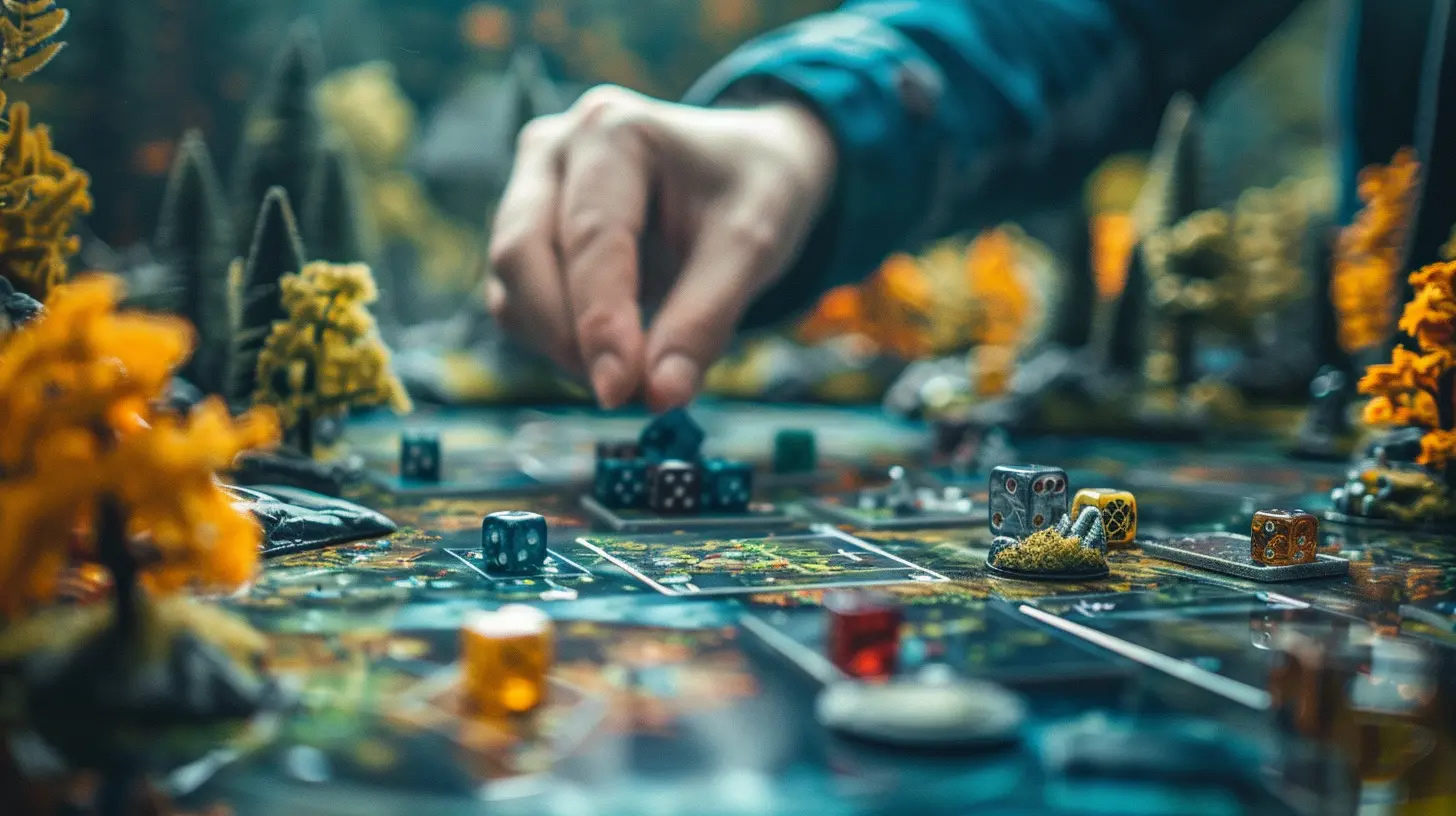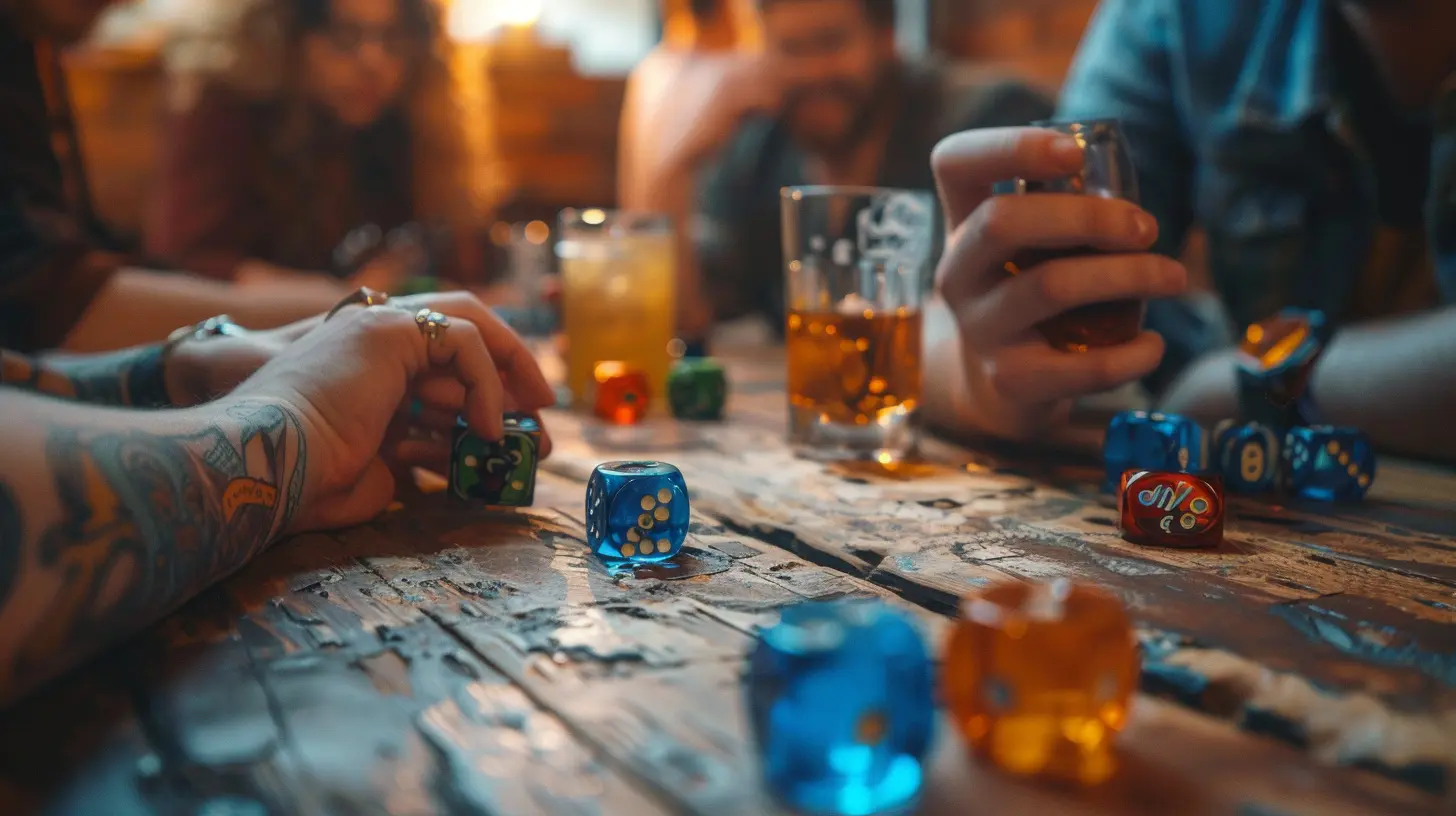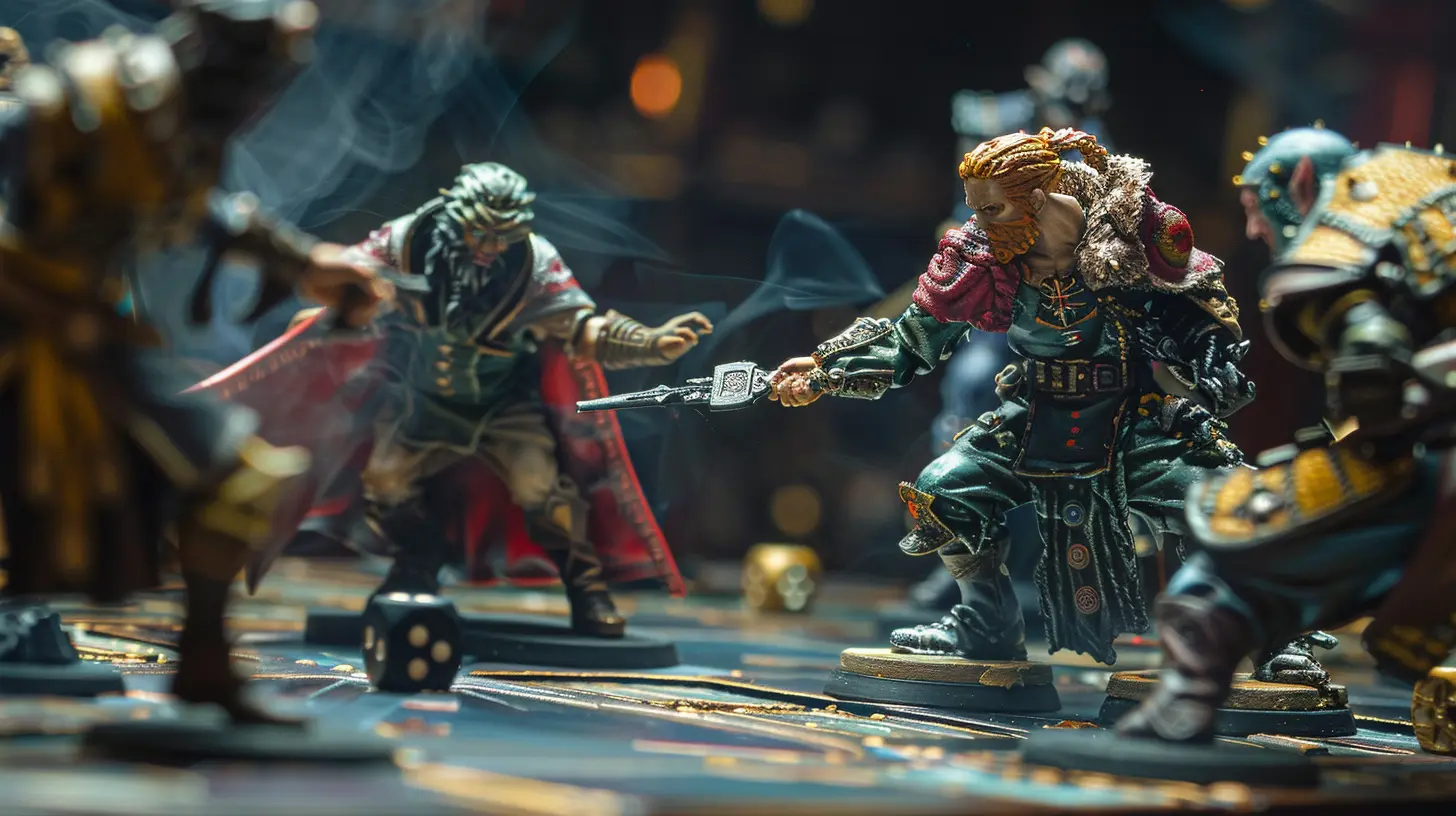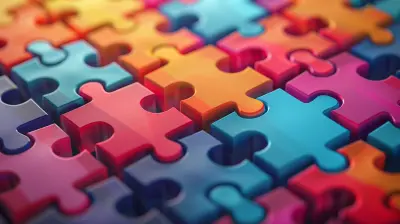How to Handle Conflict at the Table: Managing Competitive Spirits
19 May 2025
Board games, tabletop RPGs, and card games are supposed to be fun, right? But let's be real—things can get a little... intense. We've all been there. Maybe someone got a little too smug after a victory, or perhaps a heated rules debate spiraled out of control. Suddenly, the game night that was meant to build friendships feels more like a battlefield.
Conflict at the gaming table happens. It’s not necessarily a bad thing, but how you handle it determines whether the game ends with everyone laughing or everyone leaving in a huff. In this article, we’ll break down practical tips for managing competitive spirits and keeping the vibe fun and friendly.
Why Competitive Conflict Happens at the Table
First off, let’s talk about why these flare-ups occur. When you think about it, games are designed to spark competition. Whether you’re racing to conquer territory in Risk or trying to trick your friends in Among Us, games often pit players against each other. Add personal stakes—bragging rights, pride, or that one friend who literally has to win—and things can heat up faster than a microwave burrito.It’s human nature to get invested. Games tap into our instincts for victory and recognition. But when we let those instincts overshadow the core reason we’re playing (you know, to have fun), conflict can pop up. And once someone feels attacked—whether it’s their gameplay, strategy, or personality—the situation can escalate.
So, how do you balance healthy competition with harmony at the table? Let’s dive in.
Set Expectations Before You Play
Imagine a group of travelers setting off on a hike without agreeing on their destination. Chaos, right? The same principle applies to gaming. Setting expectations upfront can help everyone stay on the same page.Talk About the Game’s Tone
Some games are inherently competitive (Monopoly, we’re looking at you), while others are more collaborative (hello, Pandemic). Make sure everyone knows what kind of game they’re signing up for. If you’re about to play something cutthroat, say so. It's better to brace for impact than blindside someone who just wanted to chill.Address Rule Sticklers Early
If your group includes someone who loves quoting the rulebook verbatim, have a quick discussion before starting the game. You might agree that everyone gets one or two "rules challenges" per session, and the rest of the time, you roll with house rules. Establishing boundaries early can defuse future arguments.Define Winning for Your Group
Winning doesn’t have to mean crushing your friends into oblivion. For some groups, the “win” might be creating hilarious scenarios, pulling off a crazy strategy, or just finishing the game without flipping the table. Define success in a way that feels rewarding for everyone.
Communication Is Key
Here’s one of the golden rules of conflict resolution: Speak up before things boil over. Often, arguments at the table escalate because people bottle up their frustrations. Don’t let a small annoyance fester into full-blown drama.Use “I” Statements
Instead of saying, “You’re being obnoxious,” try something like, “I feel frustrated when the conversation gets heated.” This shifts the focus away from blame and invites dialogue.Don’t Interrupt
It’s tempting to cut someone off when emotions are running high, but interrupting can add fuel to the fire. Let them speak their piece. Then, calmly share your side.Remember the Golden Rule
Treat others at the table the way you’d want to be treated. If you wouldn’t want someone gloating about their win or nitpicking your strategy, don’t do it yourself.
Manage Personalities Effectively
Every game group has a mix of personalities, and that’s part of what makes gaming fun. But it can also be a recipe for conflict. Recognizing and respecting different play styles can help avoid unnecessary drama.The Ultra-Competitive Player
We all know this person—the one who treats every game like the Olympics. If you’re not sure who it is in your group, well... it might be you. For competitive players, consider introducing games where no one “loses,” like cooperative games or story-driven RPGs. It’s also helpful to remind everyone that winning isn’t everything (even if it sometimes feels like it is).The Overthinker
Analysis paralysis is a common gaming phenomenon. If someone is taking forever to make their move, gently nudge them along. Try using a timer to keep the game flowing or play lighter games that don’t require a PhD to strategize.The Rule Enforcer
There’s always one person who insists on following the rulebook to the letter. While this can be helpful, it often becomes a source of tension. Make a group agreement: If a rule is unclear, the table votes on an interpretation and moves on. This keeps things fair without derailing the game.The Casual Player
The casual gamers are there for the laughs, not the leaderboard. If you're a more serious player, remember to cut them some slack. Not everyone sees the game the same way you do, and that’s okay.Cool Down Heated Moments
Sometimes, no matter how much you prep, conflict still happens. The key is to de-escalate things before they spiral out of control.Pause the Game
If tensions are rising, suggest a quick break. Grab some snacks, stretch your legs, or talk about something unrelated to the game. A short pause can give everyone time to cool down.Use Humor
Laughter can defuse almost any situation. Crack a joke, poke fun at your own strategy, or bring up a hilarious past game memory. Humor reminds everyone that you’re there to have fun, not to feud.Offer an Olive Branch
If you’re in the middle of a conflict, be the bigger person. Apologize for your role in the argument, even if it was unintentional. A little humility goes a long way toward mending fences.Create a Supportive Gaming Culture
The best way to handle conflict is to prevent it from becoming a habit. Building a supportive gaming culture in your group can make conflicts rare and short-lived.Celebrate Everyone’s Success
When someone pulls off an epic move, cheer them on—even if it’s at your expense. A supportive atmosphere makes losing less painful and winning more fun.Rotate Game Types
Switching up the kinds of games you play can help balance competitive spirits. Alternate between heavy strategy games, light party games, and cooperative adventures.Check in After the Game
Once the game’s over, take a few minutes to reflect. Did everyone enjoy themselves? Were there moments of tension? Use this time to fine-tune your group dynamics for future sessions.Remember: It’s Just a Game
At the end of the day, the game is just an excuse to spend time together. Winning is fun, sure, but the memories you create while playing matter way more than the number of victories you rack up. So, the next time conflict bubbles up at the table, take a step back, breathe, and remember why you’re there in the first place.And hey, if all else fails, there’s always rock-paper-scissors.
all images in this post were generated using AI tools
Category:
Tabletop GamesAuthor:

Lana Johnson
Discussion
rate this article
3 comments
Fennec McDonald
Great advice! It’s so important to keep the fun alive during competitive games. A little communication and understanding can go a long way in keeping the peace at the table!
June 8, 2025 at 4:48 AM

Lana Johnson
Thank you! I'm glad you found it helpful! Keeping the fun and communication strong is key to a positive gaming experience.
Lily Bennett
In the dance of dice and dreams, let camaraderie guide, as friendly spirits rise above the tide.
May 30, 2025 at 3:52 PM

Lana Johnson
Absolutely! Embracing camaraderie enhances our gaming experience and helps us navigate conflicts with grace.
Enid McDaniel
Conflict at the gaming table can be challenging, but remember that every player is there to enjoy the experience. Open communication and understanding can go a long way in resolving tensions, ensuring everyone leaves with fond memories and a stronger bond.
May 23, 2025 at 4:22 PM

Lana Johnson
Absolutely, fostering open communication and empathy is key to transforming conflict into a positive experience at the gaming table. Thank you for your insight!



